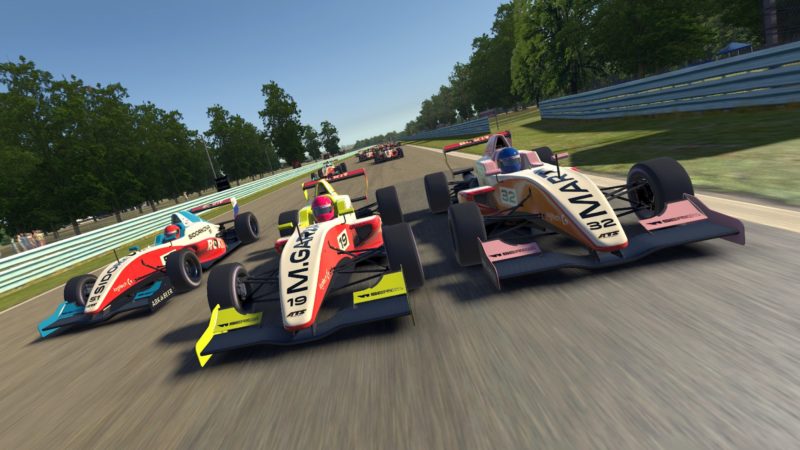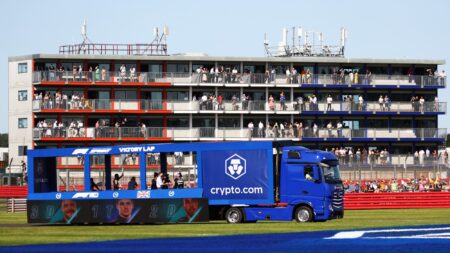“The world’s moving incredibly fast at the moment,” Fender continued. “Yeah, sim racing is the new thing and it’s something that’s been picked up incredibly quickly in this game but [there’s been] a huge amount of exposure and talent over the course of the past 18 months.
“There’s a reason why you see F1 drivers coming back to iRacing and sim racing in the offseason is because, guess what, they get just as much of a challenge through that as in any real race car.
“Racing for me is fantastic way to showcase your talent without the fear of damage.
“I know since I started car racing. I learned very quickly how high the costs can ramp up if you go around crashing into people. In the first few years, it took me a little while to get my head around.
“In sim racing, everyone can race hard without a damage bill to pick up”
“When you drive thinking of your wallet, you’ll never finish as well as you can do. Sim racing makes that completely null and void, so everyone can race as hard as they choose to.
“They can damage the car as much as they want they don’t pick up the damage bill for it. So the talented people that maybe don’t have fortunate funding as some others, they can still do just as well.”
With multiple major series starting their own esports championships following the boom in popularity of online racing during lockdown, there is plenty of scope for the virtual racing to continue growing in popularity.




